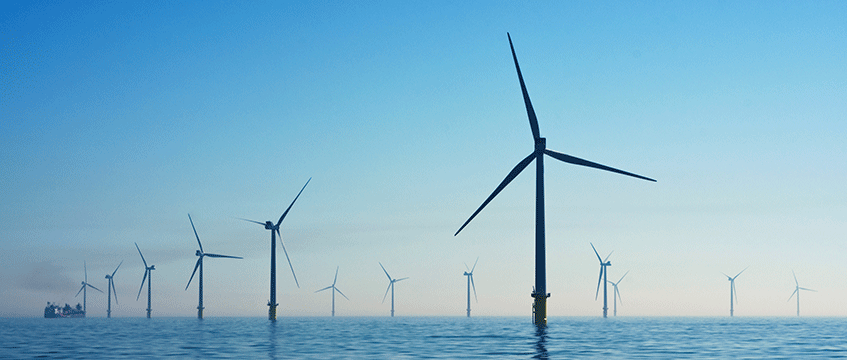UK property investors face increasing complexity when sourcing renewable electricity to support their own net zero ambitions and those of their clients. In parallel, best practice guidance is being strengthened including through the UK Green Building Council’s Renewable energy procurement guidance and the RE100 scheme – the global corporate renewable energy initiative for businesses committed to 100% renewable electricity.
Many in the property sector also want to use their buying power to accelerate investment in new renewable energy sources, and energy suppliers are developing innovative offerings in response to growing pressure to do better. When buying renewable energy, the trick is balancing the art of the possible with the pragmatic reality of available procurement schemes.
Renewable energy and net zero
Purchasing renewable energy is often seen as a “quick win” to support carbon reduction goals, but in the UK, end users cannot buy directly from generators. Power is procured via suppliers who balance their customer demand with renewable energy generated from multiple sources. These suppliers, and the renewable products they offer are therefore key to unlocking success.
The majority of a property portfolio’s carbon emissions will typically be from electricity consumption. When entering into renewable electricity contracts, consumers can choose to purchase a supply backed by a Renewable Energy Guarantee of Origin certificate, which proves the energy has come from a renewable source. REGO certificates are issued by Ofgem, apply exclusively to electricity purchase, and are widely available at modest premiums within renewable energy contracts.
Renewable gas, however, is in short supply, and attracts a heavy premium with a voluntary certification scheme. Care is therefore needed to avoid a mismatch between net-zero strategy and 100% renewable energy claims if gas is consumed in the portfolio.
The standard REGO model
Purchasing REGO certificates is the most widespread model in renewable energy supply contracts. The supplier buys in electricity to cover the customer’s pattern of use, along with REGO certificates to demonstrate renewable energy generation matching the annual consumption. As long as consumption over the course of a year is balanced with REGO certificates, the contract is considered to come from renewables, even if at any given moment the power provided via the grid did not come from the generator selling the REGO.
This balancing of renewable energy supply and demand across the grid does not go far enough to drive the suppliers to source a new generation of renewable energy. Customer demand and expectations are changing this.
Evolving procurement models
With growing pressure to deliver emissions reductions, consumers are demanding better quality renewable energy contracts with improved transparency and traceability to the source of renewable energy. New products are emerging to support this, which in turn create demand for more renewable energy from generators:
• Corporate power purchase agreements
A CPPA is a long-term three-way contract between an end user and their chosen generator, with the power sold via a contracted supplier who balances the CPPA with the customer’s actual usage.
• Additionality and new to grid
Consumers with a large volume of annual usage, high credit rating and willingness to commit to long-term CPPAs or renewable energy contracts can support financing and development of new renewable energy generation schemes, demonstrating additionality of new renewable energy to the grid through their procurement.
• Bundling
Buying the power together with the REGO from the same generator. Customers cannot achieve this themselves but can arrange it via their suppliers.
• Time matching
Granular energy matching between the outputs of a supplier’s portfolio of generators and an individual end customer’s usage hour by hour, providing visibility of customer’s impact on the grid.
Driving better procurement
Energy consumers can improve carbon reporting transparency and drive new renewable generation by demanding better quality renewable contracts, for example in line with UKGBC or RE100 guidance. JLL and clients are already starting to take action in this area, raising the bar for the next contract round.
Energy suppliers, through their deals with generators, have a vital role in offering higher standards of renewable products and drive increased renewable energy generation.
JLL, as an occupier and as an adviser to both renewable energy developers and property investors, sees first-hand the challenges when high-level ambitions meet the practicalities of renewable energy procurement. Engaging with the likes of UKGBC and suppliers to find new ways to tackle the issue is part of our ongoing commitment to shaping the future of real estate for a better world.
David Mead is associate director, utilities at JLL








